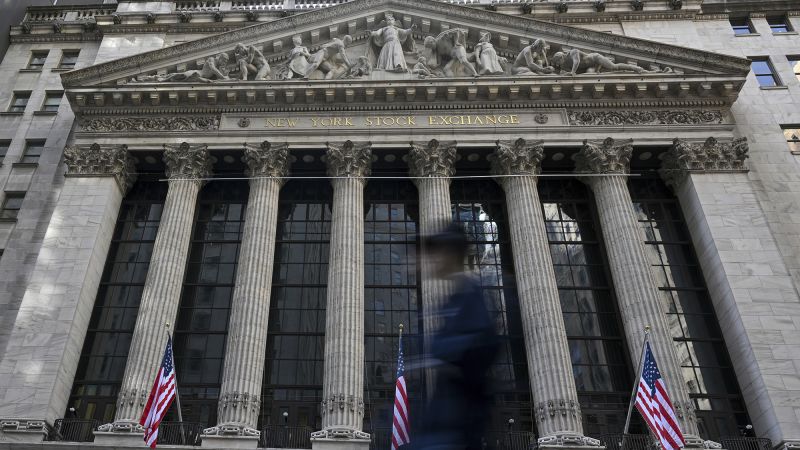US Markets Suffer Setback Amid Tariff Concerns and Fed Leadership Tensions
In a turbulent trading session, US stock markets and the dollar faced significant declines on Monday. Investors are grappling with ongoing tariff uncertainties and President Donald Trump’s continued efforts to challenge Federal Reserve Chair Jerome Powell. The Dow Jones Industrial Average dropped by 750 points, equating to a 1.9% decline, while the S&P 500 and Nasdaq Composite fell by 2.1% and 2.65% respectively, reflecting a broader market downturn.
A Weakening Dollar Signals Investor Anxiety
The US dollar index, which gauges the dollar’s performance against six major currencies, fell by 1.1%, marking its lowest level in over three years. This decline illustrates a growing lack of confidence among investors, particularly in light of Trump’s recent social media comments criticizing Powell.
- Dow Jones: -750 points (1.9%)
- S&P 500: -2.1%
- Nasdaq Composite: -2.65%
- Dollar Index: -1.1% (lowest in 3 years)
Trump’s Unyielding Criticism of Powell
The tension escalated when Trump publicly denounced Powell, stating that his “termination cannot come fast enough.” This tirade was aimed at Powell’s reluctance to lower interest rates, a point Trump has raised multiple times. Following the European Central Bank’s decision to cut its benchmark rate, Powell warned that Trump’s tariffs could have severe repercussions for inflation and economic growth.
Trump asserted, “If I want him out, he’ll be out of there real fast, believe me.” His comments underscore a significant shift in approach towards the Federal Reserve’s traditionally independent role.
Implications of Fed Leadership Changes
On Monday, Trump labeled Powell a “major loser” in another social media attack, further pressuring the Fed to adjust interest rates. Kevin Hassett, Director of the National Economic Council, indicated that the administration is considering the possibility of Powell’s removal, a departure from previously emphasizing the Fed’s independence.
Experts generally agree that Trump lacks the authority to dismiss Powell over policy disagreements, yet his willingness to disrupt norms raises alarms about potential fallout in US financial markets.
Market Reaction and Investor Sentiment
As stock prices plummet, investors typically seek refuge in safe assets like US government bonds. However, the dollar is currently under pressure, while gold prices have surged, reflecting a shift in investor sentiment.
Krishna Guha, Vice Chairman at Evercore ISI, noted that the recent market movements suggest waning confidence in Trump’s economic policies. Moreover, analysts from Macquarie attribute the dollar’s decline to concerns over the Fed’s autonomy, compounded by a lack of progress in trade negotiations.
- 10-Year Treasury Yield: Increased to 4.365%
The Federal Reserve’s board is expected to convene in early May to discuss the next steps regarding interest rates, with about 88% of traders anticipating a rate hold.
Tariffs and the Future of US Markets
Trump’s tariffs are said to mark the end of an era of US economic supremacy, pushing some investors to consider markets abroad. Analysts at Morgan Stanley echoed this sentiment, indicating that the Fed is likely to maintain a cautious approach while assessing tariff impacts.
In a notable trend, gold prices have soared, reaching record highs above $3,400 per troy ounce, with a year-to-date increase of more than 27%. This surge in gold reflects a broader flight to safety among investors as uncertainty looms.
Upcoming Earnings Reports
As Wall Street braces for first-quarter earnings, major companies like Tesla (TSLA) and Alphabet (GOOGL) are set to report their financial results soon. Investors will be keenly watching executive guidance amidst the backdrop of heightened tariff anxieties.
Sam Stovall, Chief Investment Strategist at CFRA Research, indicated that while tariffs will remain a significant concern, investor focus may soon shift to corporate earnings.
This situation continues to evolve, and further updates will be provided as new information emerges.











